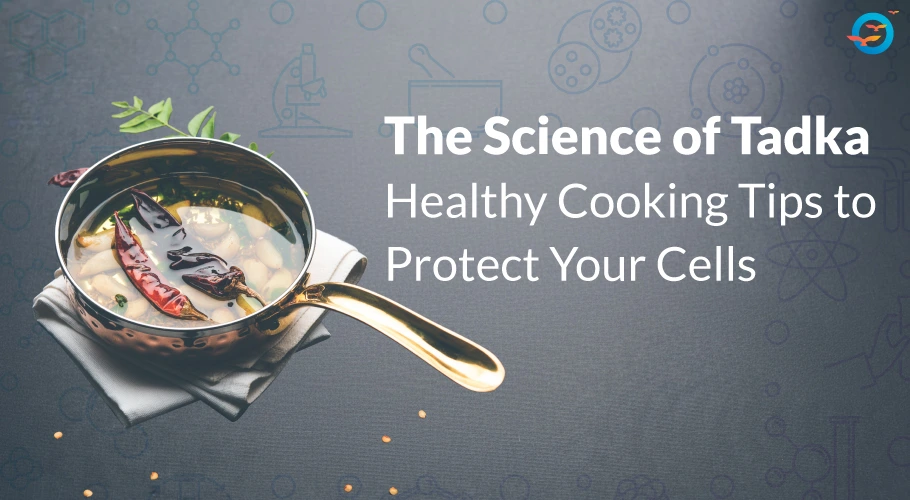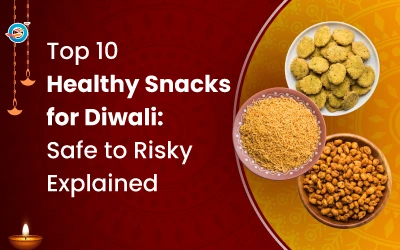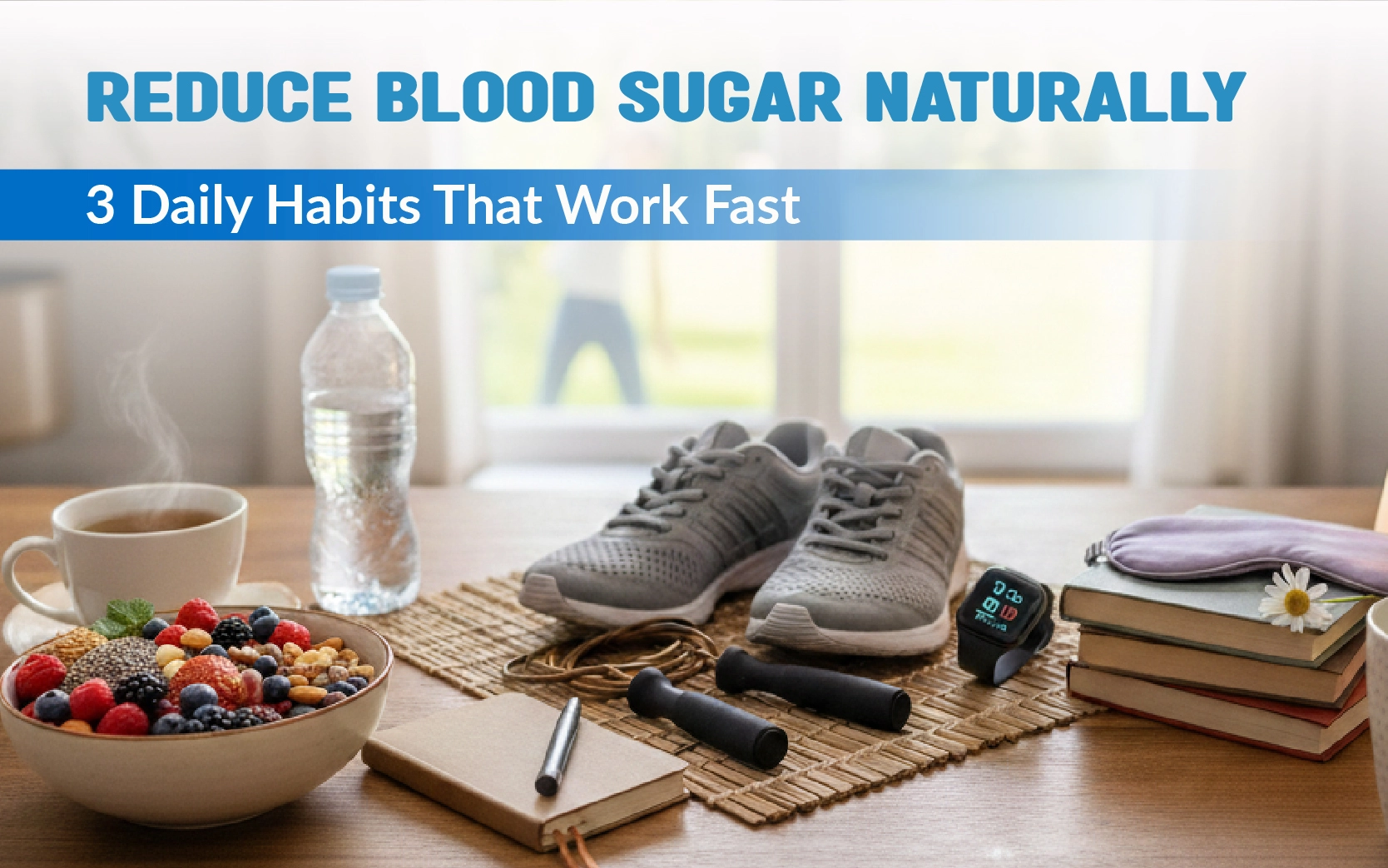The Science of Tadka: Healthy Cooking Tips to Protect Your Cells

The sizzling sound of tadka is the soul of Indian cooking. That fragrant burst of cumin, garlic, and mustard in hot oil makes every dish come alive. But here’s something most people don’t realize; that same aroma may be silently damaging your cells. The way we heat our oil can affect not just taste, but our cell membrane health, heart, and metabolism. Let’s explore how to make your tadka both flavorful and safe for your body.
Why the Cell Membrane Matters for Your Health?
Every cell in your body is surrounded by a protective layer called the cell membrane, it’s like the “brain” of the cell. This membrane decides which nutrients enter, how hormones like insulin work, and how toxins stay out.
When the membrane becomes stiff or damaged due to poor fats or overheated oils, communication between cells weakens. Over time, this leads to insulin resistance, high cholesterol, and inflammation, the very conditions linked to diabetes and heart disease. So, protecting your membranes means protecting your long-term vitality.
What Causes Cell Membrane Damage in Cooking
The problem begins when we overheat oil during tadka. As the oil crosses its smoke point (around 180–220°C), it undergoes chemical breakdown. This creates toxic compounds like trans fats, acrolein, and malondialdehyde all proven to damage cellular DNA and fatty layers.
These substances make your cell membranes rigid, interrupting how insulin binds to its receptors. Reusing oil or heating it repeatedly multiplies this effect, leading to more oxidative stress and cell membrane damage.
Understanding Oils: Refined vs Filtered vs Cold-Pressed
Not all cooking oils behave the same way under heat. Here’s how they compare:
|
Type of Oil |
Processing |
Health Impact |
Ideal Use |
|
Refined Oils |
Chemically treated and bleached |
High in trans fats; harmful for heart and membranes |
Avoid for daily cooking |
|
Filtered Oils |
Mildly heated but retain aroma and nutrients |
Balanced; safe for regular use |
Perfect for everyday tadka |
|
Cold-Pressed Oils |
Extracted without heat |
Preserve antioxidants; best for low heat or salads |
Not for high-heat frying |
Among Indian oils, filtered groundnut, sesame, or coconut oils are the best choices for everyday use. Refined oils might look cleaner but often generate toxic byproducts faster. Cold-pressed oils are wonderful for drizzling or light sautéing, not high flames.
Everyday Tadka Mistakes That Harm Your Health
Many of us unknowingly damage our oil every day through simple habits:
- Overheating oil until it smokes – this is when toxins form.
- Adding spices too late – antioxidants in cumin or turmeric can’t protect the oil if it’s already burning.
- Using too much oil – adds unnecessary calories without extra flavor.
- Reusing oil – doubles toxic buildup, harming the heart and cells.
Small mistakes repeated daily can silently harm your metabolism. The good news is, they’re easy to fix.
The Right Way to Make a Healthy Tadka
Here are some science-backed healthy cooking tips inspired by Dr. Pramod Tripathi:
- Use filtered groundnut or sesame oil for daily cooking.
- Keep your tadka light just 1–3 teaspoons of oil.
- Add spices before smoke appears to protect antioxidants.
- Finish the tadka within 10–15 seconds to avoid overheating.
- Use ingredients like turmeric and cumin, which contain natural antioxidants that stabilize oils.
This approach preserves the oil’s nutrients, reduces toxic byproducts, and keeps your cell membranes flexible, crucial for healthy sugar and fat metabolism.
Conclusion
You don’t have to give up tadka to protect your health, you just need to make it smarter. Choose the right oil, control the heat, and let your spices do their natural antioxidant magic. Remember, healthy cooking isn’t about restriction; it’s about awareness. Protect your membranes, and they’ll protect your heart, your energy, and your life.
Want to find out which cooking oils are healthiest for diabetes? Check out our latest blog.
FAQs
1. What happens to my health if I make tadka at a high temperature?
Overheating oil forms trans fats and toxins that damage cell membranes, raising inflammation and insulin resistance.
2. Which oil is best for making a daily Indian tadka?
Filtered groundnut or sesame oil is ideal. Cold-pressed oils are also good for moderate heat, while refined oils should be avoided.
3. Why should I avoid using refined oil in cooking?
Refined oils are chemically treated and lose nutrients. At high heat, they form harmful trans fats that affect heart and cellular health.
4. Can I reuse oil for tadka or frying?
No. Reused oil already contains oxidized fats and toxic compounds. Always use fresh oil for healthy cooking.
5. What is the safest way to make tadka without generating trans fats?
Use filtered oils, keep the flame low, add spices early, and finish within 10–15 seconds before the oil starts smoking.
6. How much oil should I use for a healthy tadka?
Just 1–3 teaspoons are enough to bring out flavor without excess calories or damage.
7. What is the difference between refined, filtered, and cold-pressed oils?
Refined oils are processed and harmful, filtered retain nutrients, and cold-pressed are pure and safest for health.
8. Which cooking oils are good for heart and blood sugar health?
Filtered groundnut, sesame, and coconut oils support heart function and help maintain stable blood sugar levels.

